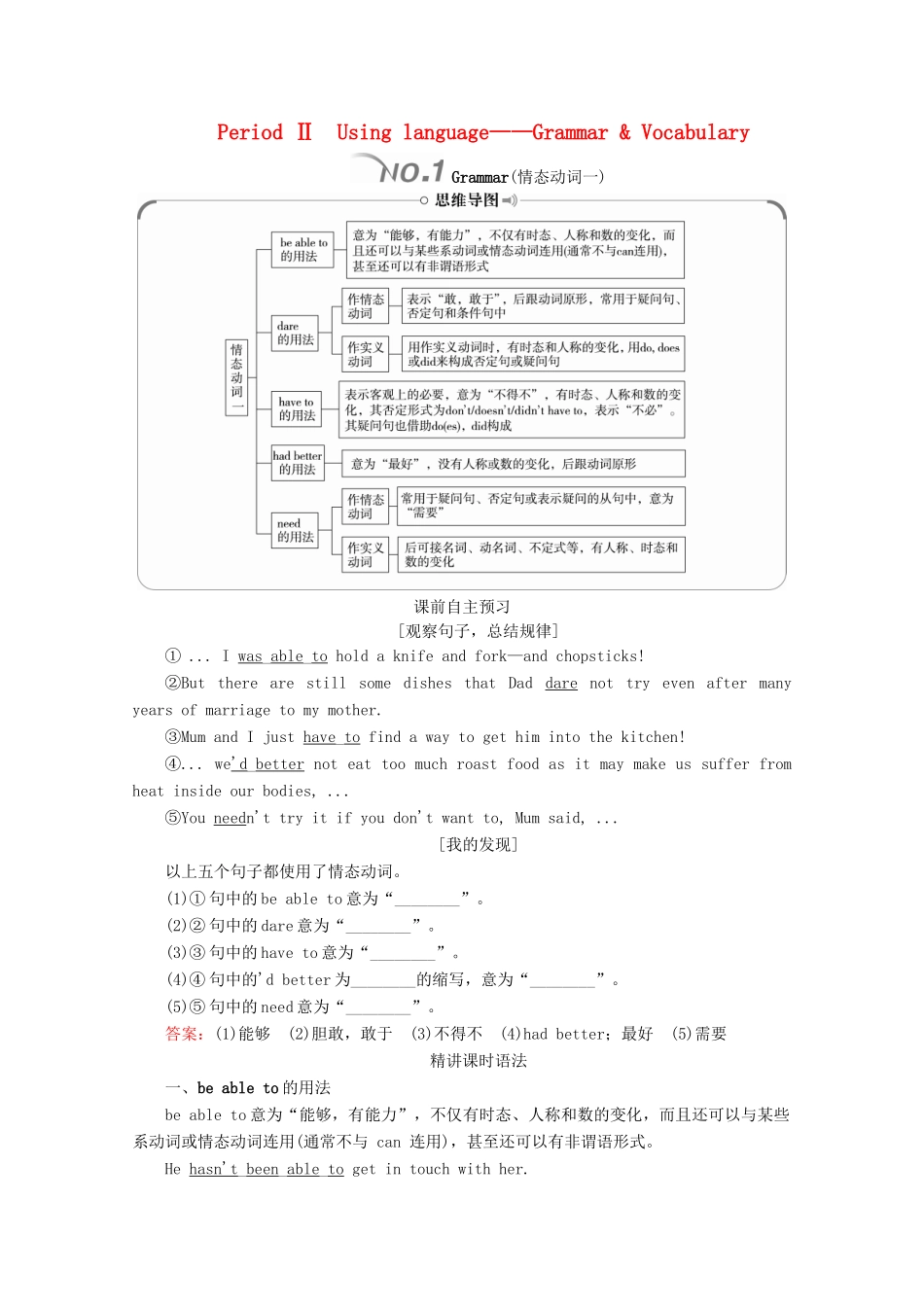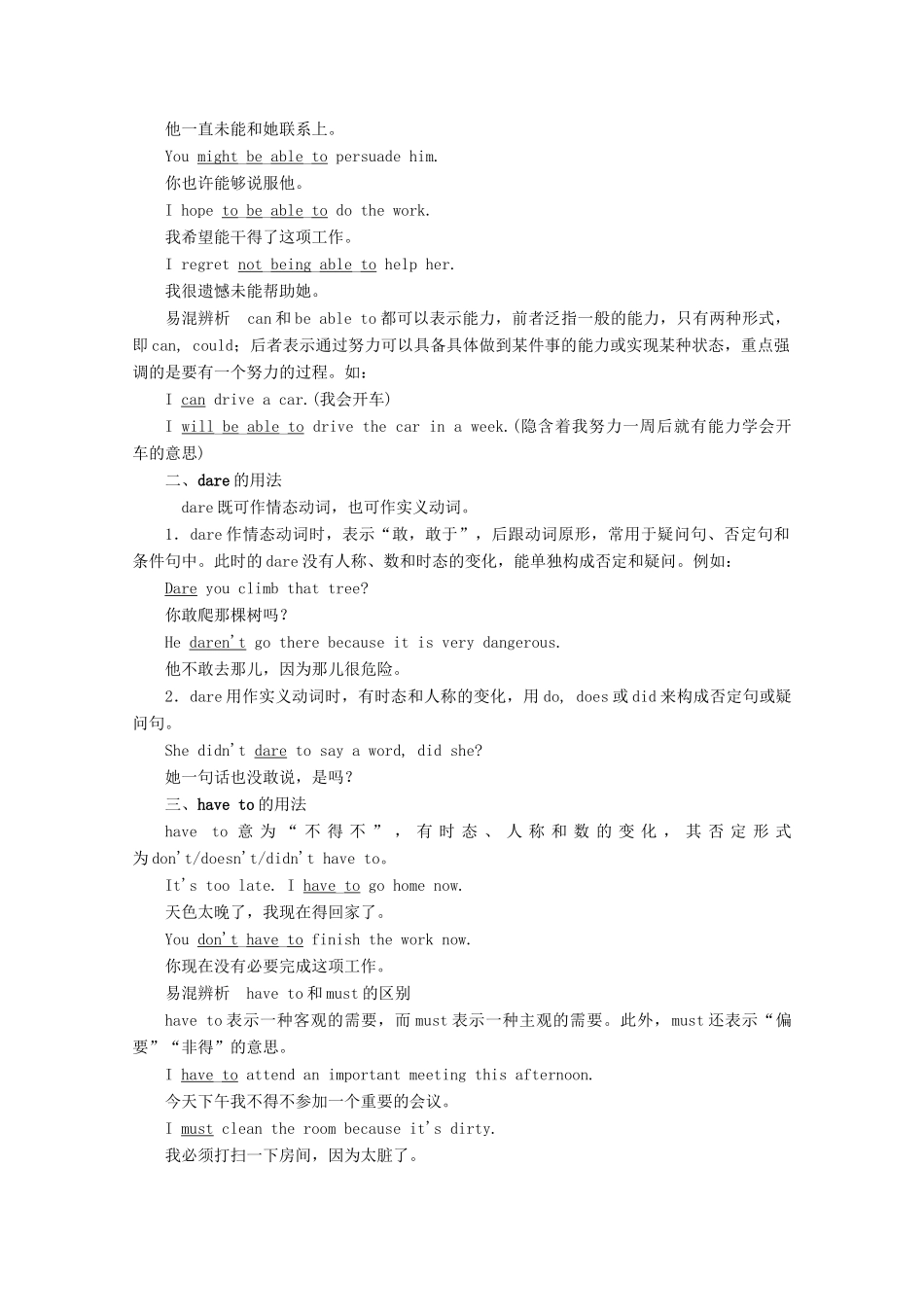Period Ⅱ Using language——Grammar & Vocabulary Grammar(情态动词一)课前自主预习[观察句子,总结规律]① ... I was_able_to hold a knife and fork—and chopsticks!②But there are still some dishes that Dad dare not try even after many years of marriage to my mother.③Mum and I just have_to find a way to get him into the kitchen!④... we'd_better not eat too much roast food as it may make us suffer from heat inside our bodies, ... ⑤You needn't try it if you don't want to, Mum said, ... [我的发现]以上五个句子都使用了情态动词。(1)① 句中的 be able to 意为“________”。(2)② 句中的 dare 意为“________”。(3)③ 句中的 have to 意为“________”。(4)④ 句中的'd better 为________的缩写,意为“________”。(5)⑤ 句中的 need 意为“________”。答案:(1)能够 (2)胆敢,敢于 (3)不得不 (4)had better;最好 (5)需要精讲课时语法一、be able to 的用法be able to 意为“能够,有能力”,不仅有时态、人称和数的变化,而且还可以与某些系动词或情态动词连用(通常不与 can 连用),甚至还可以有非谓语形式。He hasn't_been_able_to get in touch with her.他一直未能和她联系上。You might_be_able_to persuade him.你也许能够说服他。I hope to_be_able_to do the work.我希望能干得了这项工作。I regret not_being_able_to help her.我很遗憾未能帮助她。易混辨析 can 和 be able to 都可以表示能力,前者泛指一般的能力,只有两种形式,即 can, could;后者表示通过努力可以具备具体做到某件事的能力或实现某种状态,重点强调的是要有一个努力的过程。如:I can drive a car.(我会开车)I will_be_able_to drive the car in a week.(隐含着我努力一周后就有能力学会开车的意思)二、dare 的用法 dare 既可作情态动词,也可作实义动词。1.dare 作情态动词时,表示“敢,敢于”,后跟动词原形,常用于疑问句、否定句和条件句中。此时的 dare 没有人称、数和时态的变化,能单独构成否定和疑问。例如:Dare you climb that tree?你敢爬那棵树吗?He daren't go there because it is very dangerous.他不敢去那儿,因为那儿很危...


